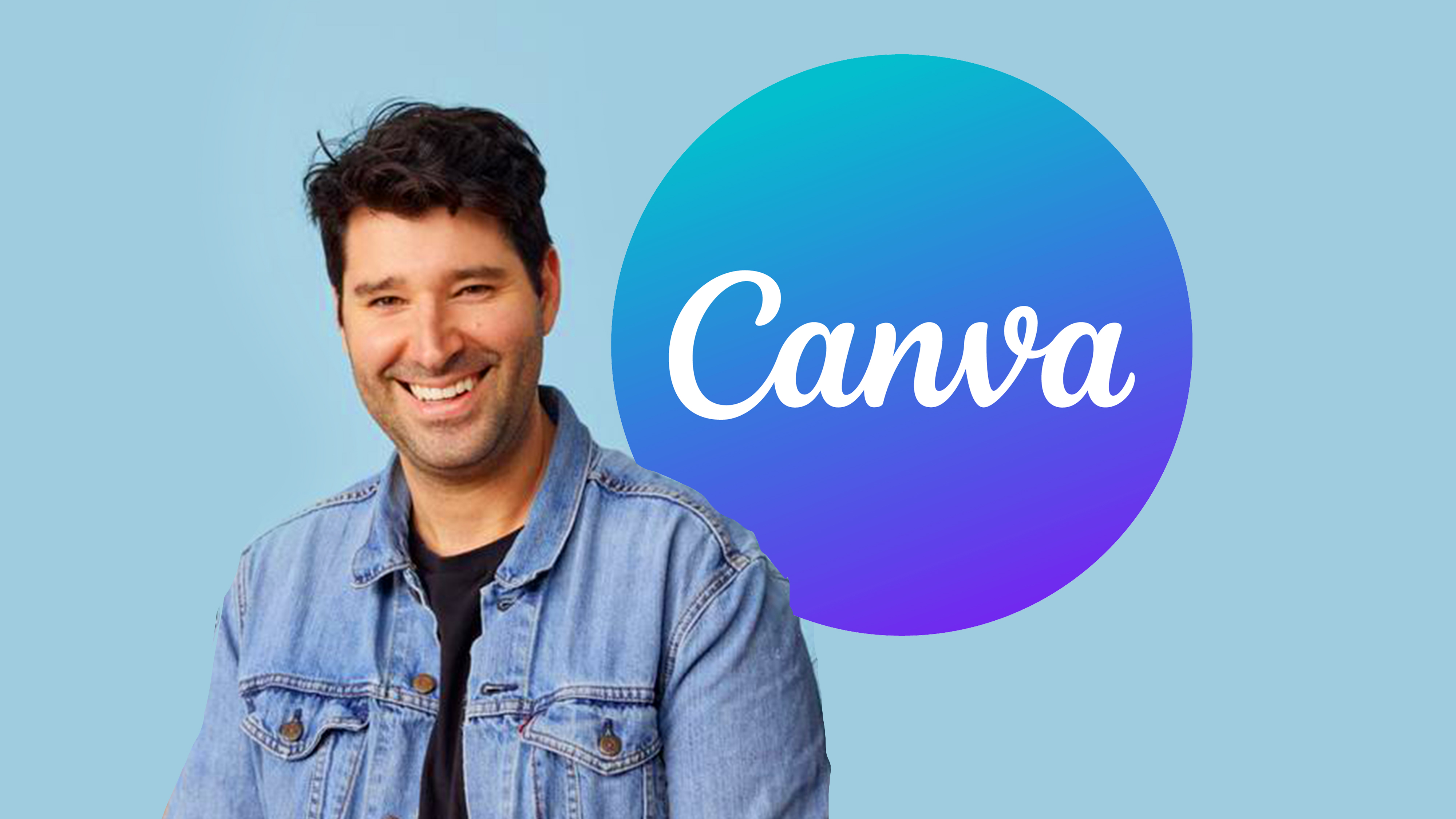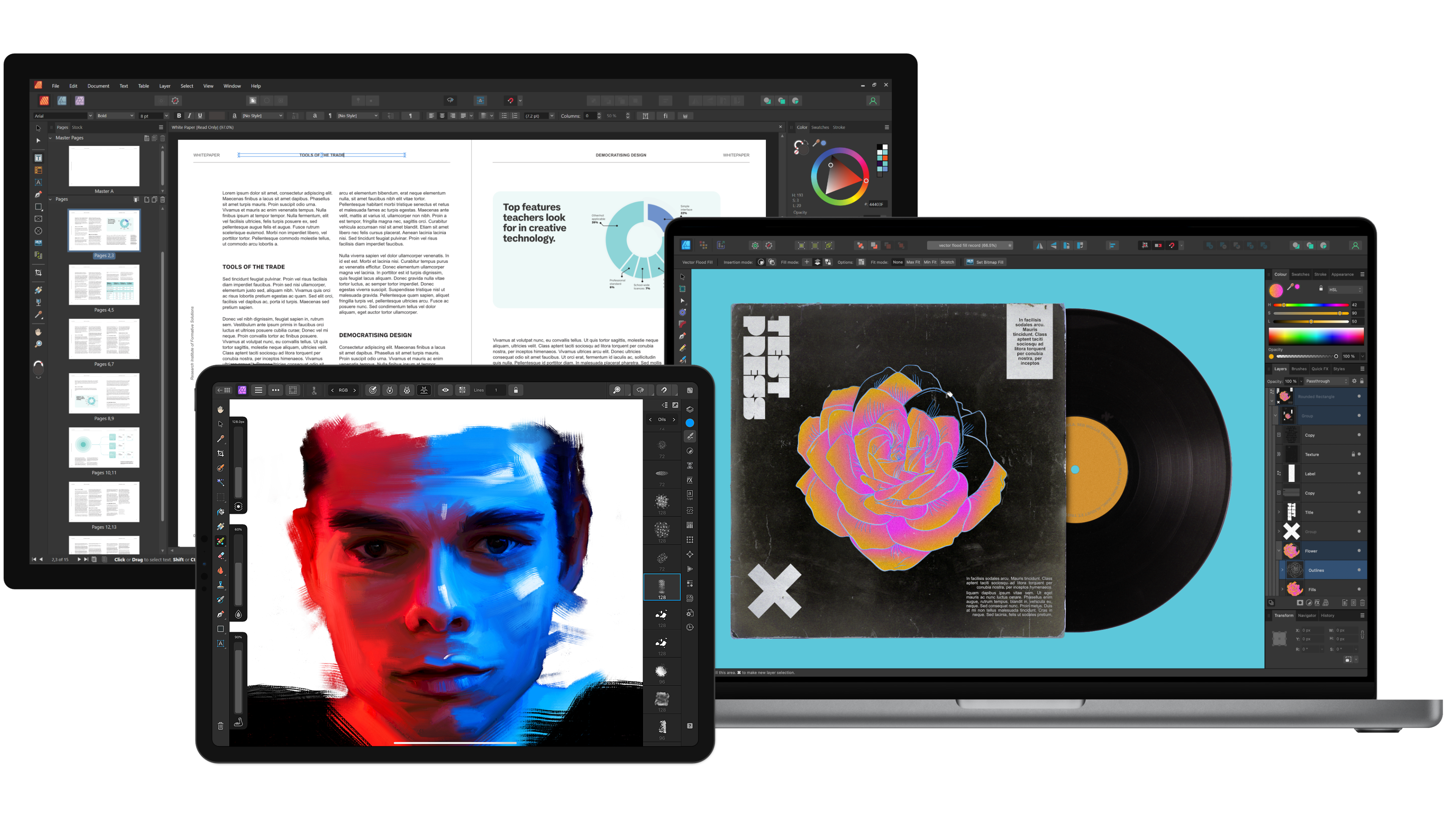Why Canva's Affinity takeover suggests a surprising shift in direction
Is Canva finally aiming to replace Adobe?
For a few months, Adobe's proposed merger with Figma was the one of the design industry's biggest corporate news. That deal might now be dead in the water, but this week a new takeover is making waves in the digital art world – Canva's purchase of Affinity.
We've long declared Affinity one of the best Creative Cloud alternatives. With one-off purchase models (fingers crossed those stay in place under Canva), the likes of Affinity Photo 2 and Affinity Designer 2 are popular choices for digital artists. But these are arguably 'pro' tools, making the merger with Canva – a platform ostensibly for inexperienced designers – somewhat surprising. And with the deal viewed by many as a clear (and feasible) attempt to take on Adobe, it could a shift in focus for Canva.

Back in 2023, we caught up with founder Cliff Obrecht, discussing everything from product pricing to, yes, AI. But one of the main talking points was Canva's offering for pro users, and how Obrecht saw the company competing with the likes of Adobe.
"We certainly don't see Canva as a straight-up replacement for tools like Figma or Adobe," Obrecht told Creative Bloq. "But pros' projects can be scaled through Canva. A business card is a great example. When a designer created a master business card design 10 years ago, they would actually have to change the text on every business card, you could only do that in InDesign or in Photoshop. Now, the designer can do the master work, and then smaller changes can be made by different teams in Canva."

And so it seems with the acquisition of Affinity, Canva is keen to move into the "master work" space. Rather than being a platform for simpler asset design or for tweaking projects created elsewhere, the addition of pro tools could mean that creatives don't need to leave the Canva ecosystem for the entire creation process.
Obrecht also distanced Canva from Creative Cloud, suggesting that the Canva platform speaks to a different use case. "We invented this space," he said. "We created an easy-to-use design tool 10 years ago that was accessible to the whole world, when before that, it was high priced, boxed software that was incredibly expensive. And so we were the ones that truly democratise design and visual communication and we'll continue to do that."
But the merger, and accompanying press release, suggest the company is now keen to close the gap. “While our last decade at Canva has focused heavily on the 99 percent of knowledge workers without design training, truly empowering the world to design includes empowering professional designers too. By joining forces with Affinity, we’re excited to unlock the full spectrum of designers at every level and stage of the design journey.”
Get the Creative Bloq Newsletter
Daily design news, reviews, how-tos and more, as picked by the editors.

Canva certainly had an eventful 2023. In March, the Australian design platform unveiled a whole suite of new branding templates and AI-powered tools, with its Magic Edit feature enjoying particular popularity on TikTok. And hot off the heels of its acquisition of Flourish, the company introduced a host of new data visualisation tools. Along with these new features, Canva also shared plans to rapidly accelerate growth in Europe. But the Affinity acquisition arguably heralds its largest expansion yet.

Thank you for reading 5 articles this month* Join now for unlimited access
Enjoy your first month for just £1 / $1 / €1
*Read 5 free articles per month without a subscription

Join now for unlimited access
Try first month for just £1 / $1 / €1

Daniel John is Design Editor at Creative Bloq. He reports on the worlds of design, branding and lifestyle tech, and has covered several industry events including Milan Design Week, OFFF Barcelona and Adobe Max in Los Angeles. He has interviewed leaders and designers at brands including Apple, Microsoft and Adobe. Daniel's debut book of short stories and poems was published in 2018, and his comedy newsletter is a Substack Bestseller.
